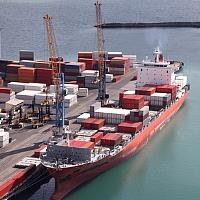BRUSSELS) – Robust new trade enforcement rules entered into force in the European Union on Monday designed to further strengthen the EU’s toolbox in defending itself against unfair trading practices.
“These new rules will help protect us from those trying to take advantage of our openness,” said the EC’s Executive Vice-President and Commissioner for Trade, Valdis Dombrovskis.
The EU would continue to work towards “a reformed and well-functioning multilateral rulebook with an effective Dispute Settlement System at its core”, he added. “But we cannot afford to stand defenseless in the meantime. These measures allow us to respond resolutely and assertively.”
The new rules upgrade the EU’s enforcement by introducing the following changes:
- empowering the EU to act to protect its trade interests in the World Trade Organization (WTO) and under bilateral agreements when a trade dispute is blocked despite the EU’s good faith effort to follow dispute settlement procedures (the regulation previously only allowed action after the completion of dispute settlement procedures); and
- expanding the scope of the regulation and of possible trade policy countermeasures to services and certain trade-related aspects of intellectual property rights (IPR) (the regulation previously only permitted countermeasures in goods).
The Commission says it is further reinforcing the EU’s tools to focus on compliance and enforcement of the EU’s trade agreements. The EU is therefore increasing the focus on enforcing its partners’ commitments in multilateral, regional and bilateral trade agreements. In so doing the Union will rely on a suite of instruments.
The proposal to amend the existing Enforcement Regulation came as a reaction to the blockage of the operations of the WTO Appellate Body. The current regulation – a basis under EU law for adopting trade countermeasures – requires that a dispute goes all the way through the WTO procedures, including the appeal stage, before the Union can react. The lack of a functioning WTO Appellate Body allows WTO Members to avoid their obligations and escape a binding ruling by simply appealing a panel report.
The revised Regulation enables the EU to react even if the WTO has not delivered a final ruling because the other WTO member blocks the dispute procedure by appealing to the non-functioning Appellate Body and by not agreeing to an alternative arbitration under WTO Dispute Settlement Agreement.
This new mechanism also applies to the dispute settlement in relation to regional or bilateral trade agreements to which the EU is party if a similar blockage arises. The EU must be able to respond resolutely in case trade partners hinder effective dispute settlement resolution, for instance, by blocking the composition of panels.



